
Politics
15:11, 05-Mar-2017
China’s targets for 2017: 6.5% growth, deeper structural reforms
Updated
10:57, 28-Jun-2018
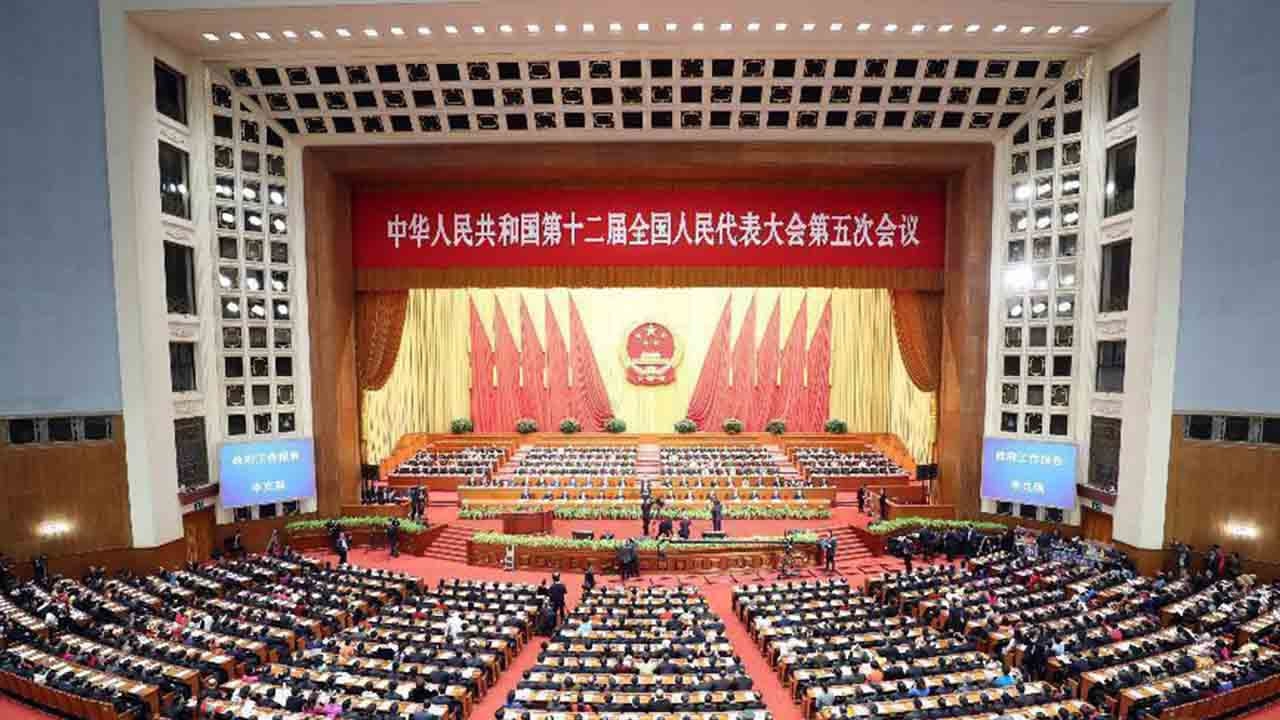
2017 GDP growth target "around 6.5 percent"
Deficit to GDP ratio projected to be 3 percent, fiscal deficit set at 2.38 trillion yuan
Environment for foreign investors to be improved
New measures to make China's skies blue again
Overcapacity poses serious challenges, will be cut
Renewed focus on structural reforms
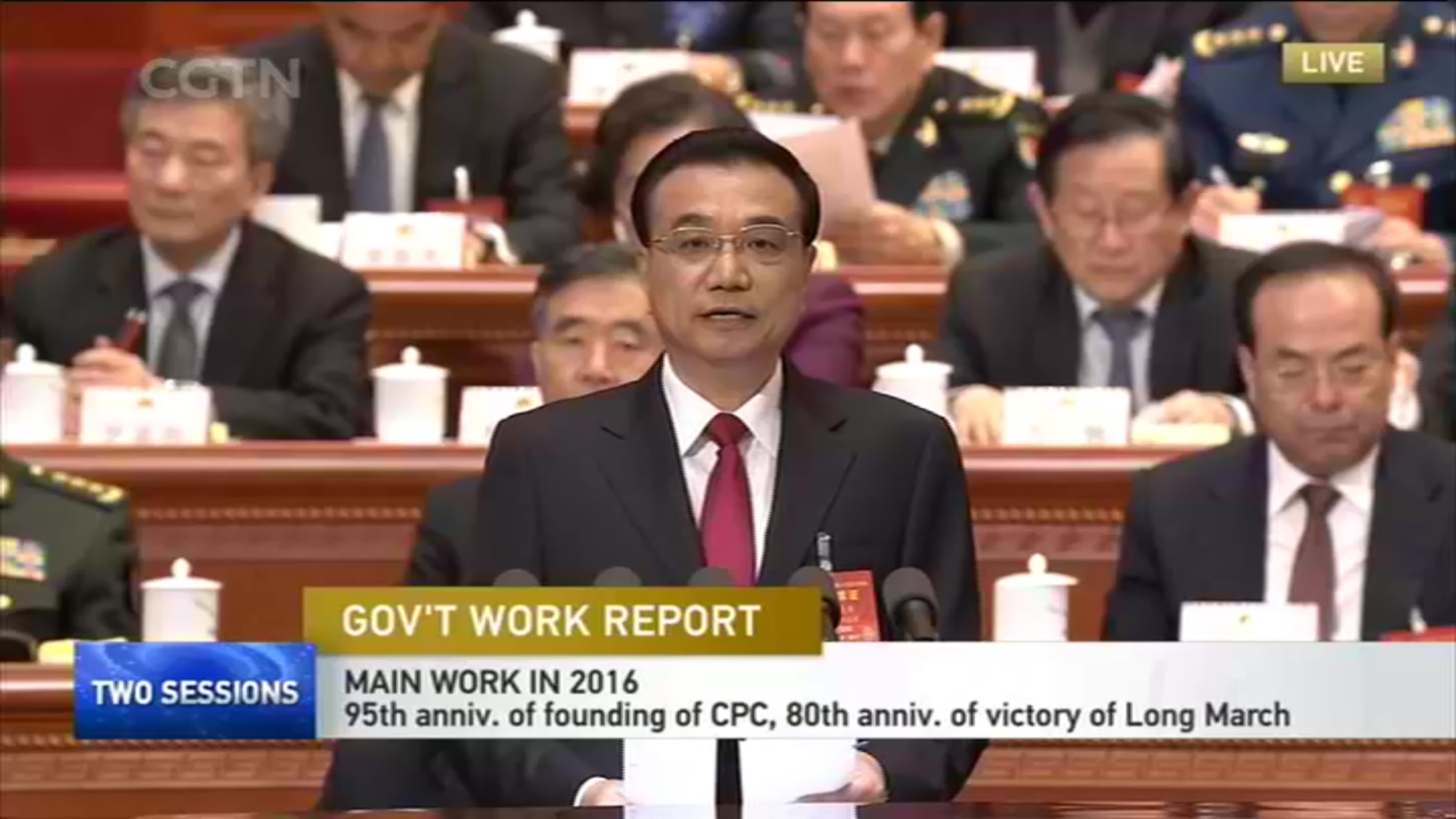
CGTN Photo
CGTN Photo
Chinese Premier Li Keqiang on Sunday set out details of the government’s objectives in 2017, focusing on the economy, the environment and China’s opening up to the world.
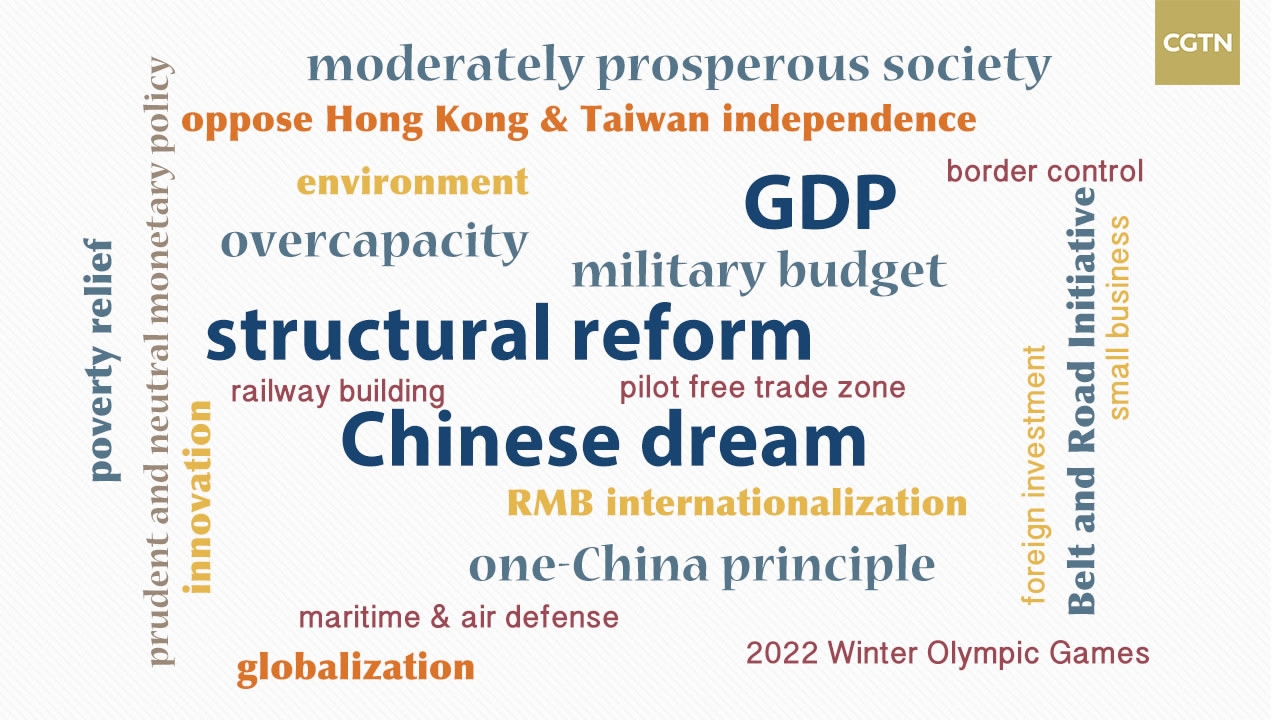
CGTN Photo
CGTN Photo
Key challenges
Internal forces driving economic growth need to be strengthened
Overcapacity poses a serious challenges in some areas
Economic prospects for some regions are divergent
Environmental concerns remain grave: strengthen steps to combat pollution
Domestic economy
China aims to trim its 2017 GDP growth target to "around 6.5 percent" as the world's second-largest economy, already expanding at the slowest pace in a quarter-century, faces an array of challenges.
"GDP is projected to grow by 6.5 percent approximately, however in practice, we will strive for better," Li said.
Li said the target was still sufficient to meet the target of doubling the size of the economy by 2020, compared to 2010.
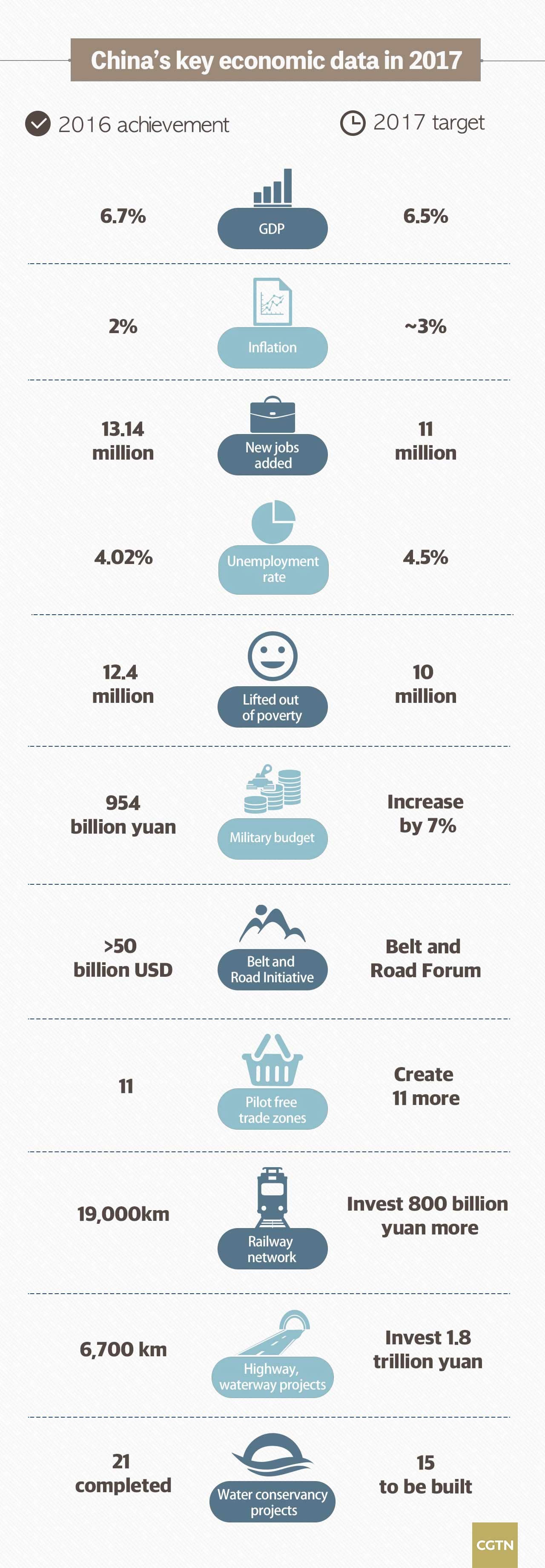
CGTN Photo
CGTN Photo
The deficit to GDP ratio is projected to be 3 percent, with fiscal deficit set at 2.38 trillion yuan. CPI will be kept at around 3 percent.
There will be a steady rise in import and export volumes, and a basic balance of international payments.
A prudent and neutral monetary policy will be pursued. The M2 money supply and aggregate financing are forecast to grow by around 12 percent in 2017.
China aims to create more than 11 million jobs this year, with registered urban unemployment rate kept within 4.5 percent. The country added 13.14 million jobs in 2016, and the registered urban jobless rate stood at 4.02 percent at the end of last year.
China will do more to unleash the potential of domestic demand in 2017 and strengthen the role of domestic demand in sustaining growth, and supply-side structural reforms will be given priority. Li emphasized the potential of domestic demand in the economy, and the need to reform industries with innovation.
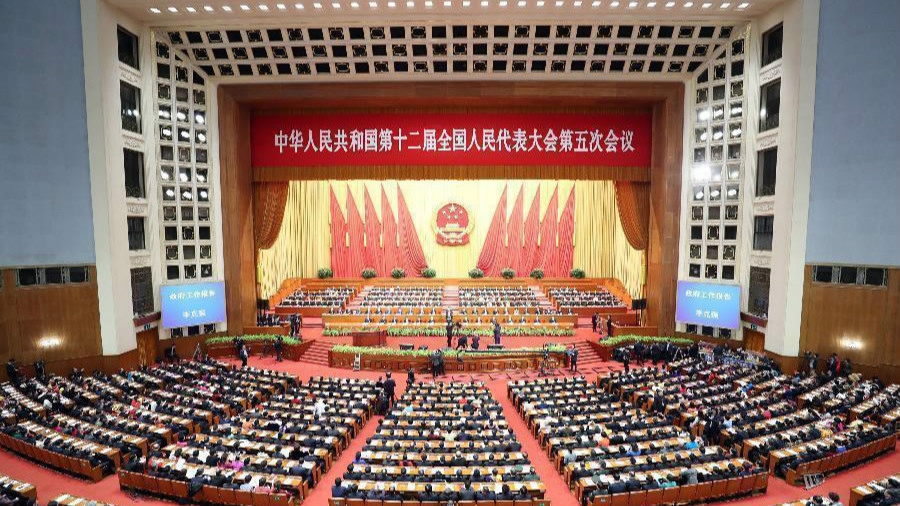
CGTN Photo
CGTN Photo
Costs will be cut for small businesses, with corporate income tax on companies with low profits halved.
Central government departments should cut expenditures by no less than 5 percent, and no increase in spending on official overseas trips, hospitality or vehicles will be allowed.
Global economy
China is confident that current global and domestic challenges will be overcome.
"World economic growth remains sluggish, and both the deglobalization trend and protectionism are growing," it reads. "There are many uncertainties about the direction of the major economies' policies and their spillover effects, and the factors that could cause instability and uncertainty are visibly increasing."
"The difficulties we face are not to be underestimated, but we must remain confident that they will be overcome," the report reads.
Protectionism
Premier Li noted that the trends of "deglobalization" and protectionism are growing, and said China will become more involved in global governance and steer economic globalization to see that it is more inclusive, mutually beneficial, and equitable.
He added that China will not shift in its commitment to promoting global economic cooperation, and will uphold the multilateral trading regime as the main channel of international trade, and play an active role in multilateral trade negotiations.
“China is ready to join hands with the international community and build a new type of international relations based on cooperation and mutual benefit and make new contributions to building a community of shared future for all humankind.”
Opening up to the world
China will allow foreign companies to take part in national science and technology projects.
China will strive to optimize the environment for foreign investors by:
- revising the catalog of industries open to foreign investment;
- encouraging foreign companies to be listed in China;
- allowing foreign companies to take part in national science and technology projects;
- giving foreign companies same treatment as domestic firms when it comes to licensing and government procurement.
Eleven new pilot free trade zones will be developed and local governments will be allowed to adopt preferential policies to attract foreign companies.
The liberalization of foreign trade and investment will be encouraged.
China will pursue the Belt and Road Initiative, by deepening international industrial-capacity cooperation and promoting the export of Chinese goods and services.
Overcapacity
China will push its drive to cut overcapacity in bloated sectors, with targets to slash steel production capacity by around 50 million tonnes and coal by at least 150 million tonnes this year.
The report pledged to make more use of market- and law-based methods to effectively deal with "zombie enterprises."
Excess capacity in urban real estate inventory will also be cut.
Innovation economy
China can only advance through reform and innovation, Li stressed. The country will make greater efforts this year to implement innovation-driven development strategy, upgrade the structure of the real economy, and improve its performance and competitiveness.
"We will accelerate R&D on and commercialization of new materials, artificial intelligence, integrated circuits, bio-pharmacy, 5G mobile communications, and other technologies, and develop industrial clusters in these fields," the report read.
Environment
Energy consumption per unit of GDP will be reduced by at least 3.4 percent and continued reductions in major pollutants will be implented. China will make its skies blue again by:
- addressing pollution caused by coal burning;
- upgrading coal-fired power stations;
- tackling sources of pollution;
- control over exhaust emitted by vehicles; strengthen research on smog.
Hong Kong, Taiwan and Macao
Premier Li stressed China’s commitment to “both the letter and spirit” of the “one country, two systems” principle which allows Hong Kong and Macao high levels of autonomy. “The notion of Hong Kong independence will lead nowhere,” he added.
He also pledged that the one-China policy would be upheld, and policies related to Taiwan would be implemented. China will “resolutely oppose and contain separatist activities for Taiwan independence.”
“People on both sides of the Taiwan Straits should keep in mind the greater interests of the nation, firmly advance peaceful reunification of China, and jointly create better lives and a brighter future for all Chinese.”

SITEMAP
Copyright © 2018 CGTN. Beijing ICP prepared NO.16065310-3
Copyright © 2018 CGTN. Beijing ICP prepared NO.16065310-3